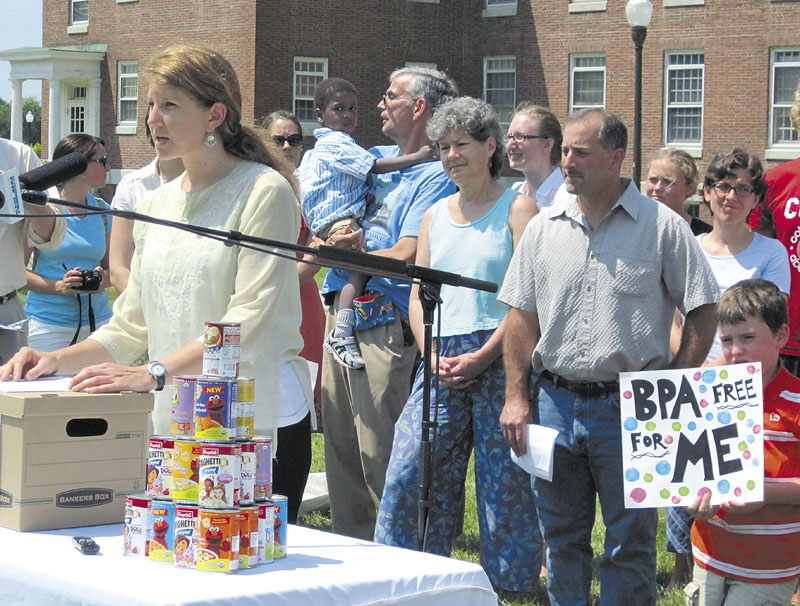AUGUSTA — State environmental regulators voted Thursday to move forward with consideration of new rules that would further limit the sale of products containing the chemical bisphenol-A, which some scientists have linked to learning disabilities in children.
The Board of Environmental Protection accepted a citizen initiative signed by hundreds of Maine mothers calling for the state to expand a ban on the chemical that’s used in hardened plastics. Maine already prohibits the sale of sippy cups, baby bottles and other reusable food and beverage packages that contain BPA.
Now the Environmental Health Strategy Center is leading an effort to expand that ban to include infant and toddler food containers.
“BPA is a toxic chemical that harms children,” said Steve Taylor, the center’s program director. “Now it’s clear other alternatives are widely available. It’s time to take the next step.”
Last month, activists presented Department of Environmental Protection Commissioner Pattie Aho with more than 800 signatures calling on the state to consider writing new rules to expand the ban on BPA. State law allows groups to turn in at least 150 signatures to call for consideration of new rules.
On Thursday, the Board of Environmental Protection voted to hold a public hearing, tentatively scheduled for Sept. 6, to hear from advocates and opponents of the proposed rules.
Ben Gilman, of the Maine State Chamber of Commerce, said he expects opposition, saying the chamber believes it’s too soon to implement another set of new rules.
“The Legislature just dealt with the Kid-Safe Products Act, and currently the DEP is implementing those changes,” he said. “It’s a pretty broadly written law.”
Advocates for additional changes in Maine noted a federal decision announced Tuesday that bans BPA in baby bottles and sippy cups. Although Maine already has taken that step, they say it’s further proof that more scientists agree that the chemical is harmful. Some studies indicate that BPA is a hormone disrupter that is linked to cancer, obesity, learning disabilities, male infertility and early puberty in girls.
Gov. Paul LePage has questioned many of those studies, saying that there’s “not yet a consensus among scientists about BPA.” He also made headlines last year when he said the “worst case is some women may have little beards” from being exposed to the chemical.
The Food and Drug Administration is spending $30 million on its own studies to assess the chemical’s effects on human health, according to the Associated Press.
Susan Cover — 621-5643
scover@mainetoday.com
Send questions/comments to the editors.



Success. Please wait for the page to reload. If the page does not reload within 5 seconds, please refresh the page.
Enter your email and password to access comments.
Hi, to comment on stories you must . This profile is in addition to your subscription and website login.
Already have a commenting profile? .
Invalid username/password.
Please check your email to confirm and complete your registration.
Only subscribers are eligible to post comments. Please subscribe or login first for digital access. Here’s why.
Use the form below to reset your password. When you've submitted your account email, we will send an email with a reset code.